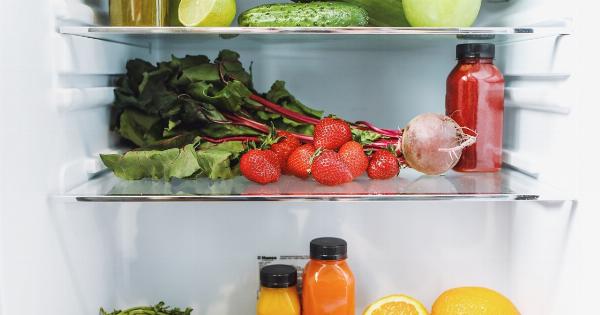Food waste is a significant global issue that not only contributes to environmental problems but also affects our wallets. Each year, billions of tons of food are wasted, leading to unnecessary expenses and negative impacts on the planet.
By implementing some smart ideas and strategies, you can minimize food waste and save money in the process. In this article, we will discuss ten practical tips to help you reduce food waste and cut down on expenses.
1. Plan Your Meals
One of the simplest yet effective ways to avoid food waste is by planning your meals in advance. Before heading to the grocery store, make a list of the meals you intend to prepare for the week.
By planning your meals, you can avoid buying unnecessary ingredients and ensure that the food you purchase will be used.
2. Take Stock of Your Pantry
Regularly taking stock of your pantry and fridge is a great habit to incorporate into your routine. Knowing what you have on hand allows you to utilize ingredients before they expire.
Make it a point to organize your pantry and fridge regularly, ensuring that older items are used before newer ones.
3. Practice FIFO (First In, First Out)
FIFO is a concept commonly used in inventory management, but it can also be applied to your home kitchen. When unpacking groceries or storing leftovers, prioritize using the older items first.
By following the FIFO principle, you can prevent food from getting lost or forgotten at the back of your pantry or fridge.
4. Understand Expiry Dates
Expiry dates can be confusing, but understanding them correctly is crucial in preventing food waste. “Best Before” dates indicate the quality of the product, while “Use By” dates indicate safety concerns.
It’s essential to distinguish between these labels to avoid unnecessarily throwing away perfectly good food.
5. Get Creative with Leftovers
Leftovers often go to waste because people don’t know what to do with them. However, with a little creativity, you can transform your leftovers into delicious meals.
For example, leftover roasted chicken can be used in sandwiches or salads, and vegetable scraps can be turned into flavorful stocks.
6. Store Food Properly
Proper storage is essential in extending the shelf life of your groceries. Different types of food require specific storage methods.
For example, storing fruits and vegetables separately and using airtight containers for leftovers can help prevent spoilage. Taking the time to learn about proper storage techniques can go a long way in reducing food waste.
7. Utilize Freezing
Freezing is an excellent way to preserve food and increase its lifespan. Some foods, like bread, meat, and vegetables, can be safely frozen for future use.
Invest in quality freezer-safe containers and label them with the contents and date of freezing to keep track of what you have.
8. Compost Food Scraps
While it’s best to avoid generating food waste in the first place, some scraps are inevitable. Instead of tossing them in the trash, consider composting them.
Composting not only reduces waste but also produces nutrient-rich soil that can be used to fertilize plants. Check if your local community has composting programs or consider setting up your own compost bin.
9. Shop Mindfully
When shopping for groceries, being mindful of your purchases can help minimize waste. Avoid bulk buying perishable items unless you have a plan for using them. Purchase only the amount of food you and your family can consume within a reasonable timeframe.
Additionally, buying local and seasonal produce reduces the chances of food spoiling during transportation.
10. Donate and Share Excess Food
If you find yourself with excess food that you won’t be able to consume on time, consider donating it to local food banks or sharing it with neighbors, friends, or colleagues.
By doing so, you not only reduce waste but also contribute to helping those in need.
Conclusion
By implementing these smart ideas, you can significantly reduce food waste and save money while making a positive impact on the environment.
Planning your meals, understanding expiry dates, getting creative with leftovers, and practicing proper storage techniques are just a few steps towards a more sustainable and wallet-friendly approach to food consumption. By being mindful and taking proactive action, we can all play a part in tackling the global issue of food waste.




























